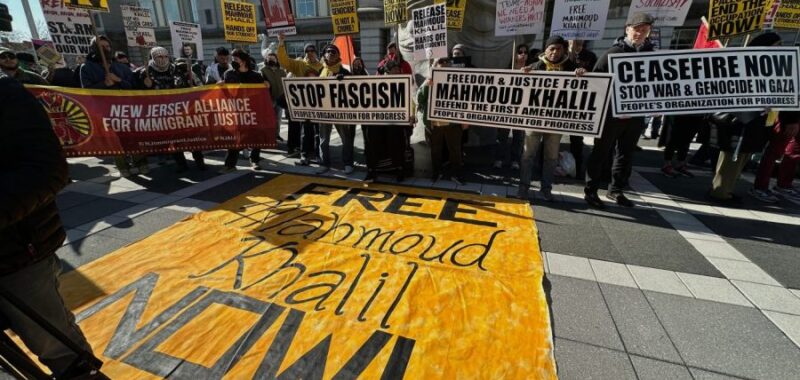
The Trump administration had no arrest warrant for former Columbia student Mahmoud Khalil when he was detained, court documents on Thursday showed.
In the documents, the government said the federal officials “had exigent circumstances to conduct the warrantless arrest” against Khalil and that the former lead negotiator for the pro-Palestinian arrest at Columbia was “a flight risk.”
“The agents had reason to believe that the respondent was likely to escape before a warrant could be obtained,” the federal government said in the court filing.
Video footage of the rest from Khalil’s wife shows him peacefully leaving with the officers, saying, “I’m coming with you.”
“In DHS’ filing in immigration court this week, we learned for the first time that the DHS agents who arrested Mahmoud lied to him: they wrote in their arrest report that the agents told him that they had an arrest warrant, but DHS has now admitted in their filing that that was a lie and that there was no warrant at all at the time of the arrest,” said Marc Van Der Hout of Van Der Hout, one of Khalil’s lawyers.
The Hill has reached out to the State Department for comment.
Khalil’s lawyers are fighting in federal court for Khalil to receive bail and a preliminary injunction to bring him back to New Jersey from Louisiana.
The fight is taking place after an immigration judge in Louisiana ruled the proceedings against Khalil could continue under the government’s argument the secretary of state has the right to order the deportation of noncitizens if they pose a threat to the foreign policy of the United State.
The government has also argued Khalil did not disclose on his permanent residency application previous employers such as his position at the Syria Office in the British Embassy in Beirut.
“ICE has admitted it detained Mahmoud illegally and without a warrant– to justify it, they are now flat out lying with an absurd claim that he tried to flee. At every step of the way, the Trump administration has flouted the law,” said Samah Sisay, staff attorney at the Center for Constitutional Rights.

